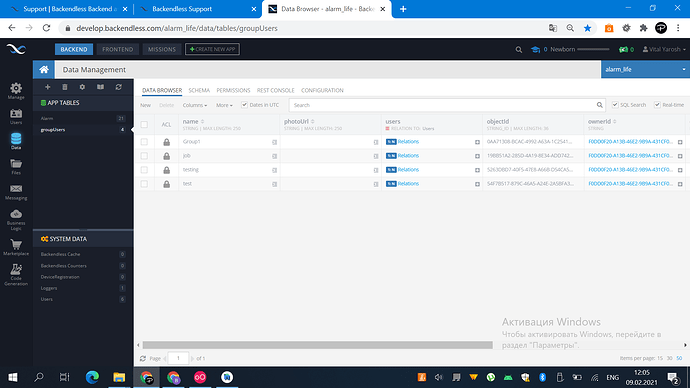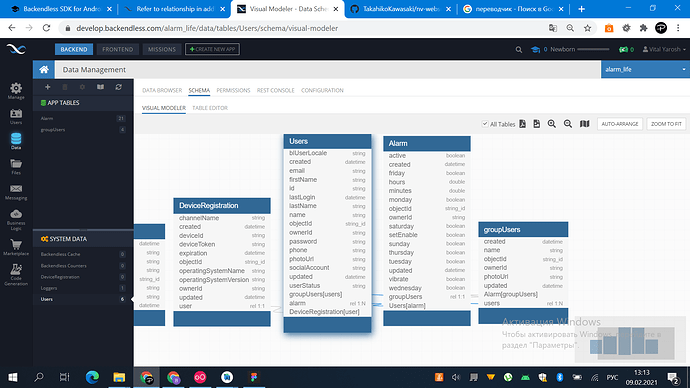How can I refer to relationships in a method addUpdateListener. The following code returns nothing to me.
groupRt.addUpdateListener("users = '$objectId'", object : AsyncCallback<Group> {
override fun handleResponse(response: Group?) {
for (i in groupList.indices) {
if (groupList[i].objectId == response?.objectId) {
if (response != null) {
groupList[i] = response
}
}
}
Log.e("back", response.toString())
coroutine.resume(groupList)
}
override fun handleFault(fault: BackendlessFault?) {
Log.e("back", fault?.message!!)
}
})
Below is an example of my table

